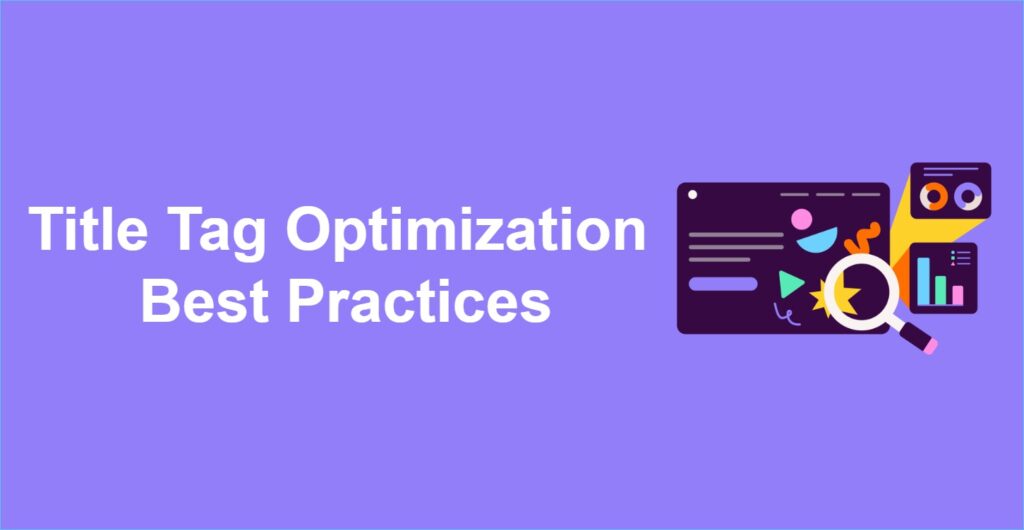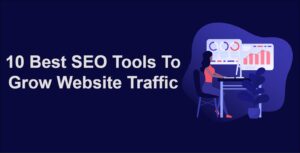In the dynamic landscape of search engine optimization (SEO), every element on a webpage plays a crucial role in determining its visibility and ranking on search engine results pages (SERPs). One of these critical elements is the title tag.
A well-optimized title tag can significantly impact your website’s SEO performance, making it essential to understand the best practices for optimizing title tags. In this comprehensive guide, we’ll explore the significance of title tag optimization, delve into the best practices, and provide insights on how to enhance your website’s SEO performance through effective title tag optimization.
Title tag optimization is a critical aspect of SEO that can significantly impact your website’s search visibility and user engagement. By following best practices and tailoring your title tags to different scenarios, you can enhance your website’s performance and attract more organic traffic.
Title tags are not only for search engines but also for users, so prioritize creating engaging and informative titles that encourage users to click through and explore your content.
What Is SEO Title Tag Optimization
The title tag, also known as the meta title or HTML title, is the main title that appears in search engine results and web browser tabs when a user visits a webpage. It serves as a concise and informative description of the page’s content and gives users and search engines a preview of what the page offers. Here’s why title tag optimization matters:
Search Optimization Title Tag
Title tags are pivotal in search engine optimization (SEO) by serving as concise and descriptive summaries of web page content. When a page is opened, a title tag appears as the clickable headline in search engine results and in browser tabs. Optimizing title tags enhances visibility, click-through rates, and overall search ranking.
1. Improved Click-Through Rates
A well-crafted title tag can entice users to click on your link in the search results. When the title accurately reflects the content of the page and appeals to user intent, it increases the likelihood of users clicking through to your website.
2. Enhanced Search Visibility
Search engines use the title tag as a primary factor to determine the relevance of a webpage to a user’s query. Optimizing the title tag with relevant keywords can improve your website’s chances of ranking higher in search results.
3. Branding and Consistency
The title tag is an opportunity to reinforce your brand and establish consistency across your website. A consistent format for title tags can help users recognize your content and increase brand recall.
4. Clear Content Preview
A well-crafted title tag provides users with a clear idea of what to expect when they visit your page. This reduces bounce rates and ensures that visitors are more likely to engage with your content.
Best Practices for Title Tag Optimization
Effective title tag optimization involves a combination of strategic keyword placement, readability, and engaging content description. Here are the best practices to follow:
Best practices for optimizing title tags for SEO involve crafting concise and relevant titles that incorporate target keywords naturally. These strategies improve search engine ranking and click-through rates, driving organic traffic. Explore how to optimize title tags effectively for SEO success.
Here are the Best Practices for Title Tag Optimization
1. Use Relevant Keywords
Research and identify relevant keywords that align with the content of your page and match user intent. Include primary and secondary keywords that accurately reflect the topic.
2. Keep it Concise
Title tags should ideally be between 50 to 60 characters to ensure they display properly in search results. Keep your message concise while conveying the essence of your content.
3. Create Unique Titles
Avoid using duplicate title tags across multiple pages. Each page should have a unique and descriptive title that distinguishes it from others. Keeping titles under 70 characters is essential
4. Prioritize User Intent
Craft title tags that align with user intent. Think about what users are searching for and how your page fulfills their needs. A relevant title tag improves click-through rates.
5. Place Keywords at the Beginning
Whenever possible, include your primary keyword at the beginning of the title tag. This places emphasis on the main topic and improves search engine visibility.
6. Write for Humans
While optimization is important, title tags are ultimately meant for human users. Ensure your title tag is engaging, informative, and provides a clear preview of your content.
7. Avoid Keyword Stuffing
While it’s important to include keywords, avoid overloading your title tag with excessive keywords. This can appear spammy and harm your SEO efforts.
8. Consider Branding
Incorporate your brand name into the title tag, especially for homepage and key landing pages. This helps users recognize your content and build brand awareness.
9. Test and Monitor Performance
Regularly analyze the performance of your title tags using tools like Google Search Console or third-party SEO tools. Adjust and refine your title tags based on performance data.
How do you write a title tag for SEO?
Writing an effective title tag for SEO is a crucial aspect of on-page optimization. A well-crafted title tag informs search engines about your page’s content and entices users to click on your link in search results.
Title tags are essential for both SEO and user engagement. They’re often the first impression users have of your page, so crafting them thoughtfully is crucial in driving organic traffic and improving click-through rates.
Here’s how to create a compelling title tag:
1. Be Descriptive: Your title should accurately describe the content of your page. For example, if your page is about “Healthy Vegan Recipes,” your title might be: “Delicious and Nutritious Vegan Recipes for a Healthier You.”
2. Use Keywords: Include relevant keywords that users might use when searching for your content. For a vegan recipe website, consider using keywords like “vegan recipes” or “plant-based meals.”
3. Keep it Concise: Google typically displays a title tag’s first 50-60 characters in search results. Make sure your title is concise and to the point. For example, “Quick Vegan Dinner Recipes.”
4. Be Unique: Each page should have a unique title tag. Avoid duplicate titles, as this can confuse both users and search engines.
5. Engage the Audience: Craft titles that pique interest or offer solutions. For instance, “Simplify Weeknight Cooking with Easy Vegan Recipes.”
6. Front-Load Keywords: Place essential keywords near the beginning of your title for better visibility in search results.
7. Branding: If applicable, include your brand name at the end of the title, like “Easy Vegan Recipes | GreenLife Kitchen.”
Writing Title Tags for Different Scenarios
Different types of webpages require varying approaches to title tag optimization. Here’s how to optimize title tags for different scenarios:
1. Homepage
For your website’s homepage, focus on creating a title tag that reflects your brand and provides a general overview of your business or services. Include your brand name and a concise description of your offerings.
2. Product or Service Pages
When optimizing title tags for product or service pages, include specific keywords that describe the product or service and highlight its benefits. Incorporate relevant features and unique selling points.
3. Blog Posts
For blog posts, craft title tags that accurately represent the topic of the post. Use compelling language to engage readers and convey the value they’ll gain from reading the post.
4. Location-Based Pages
If your business has physical locations, optimize title tags for location-based pages by including the city or region you serve. This helps attract local search traffic.





